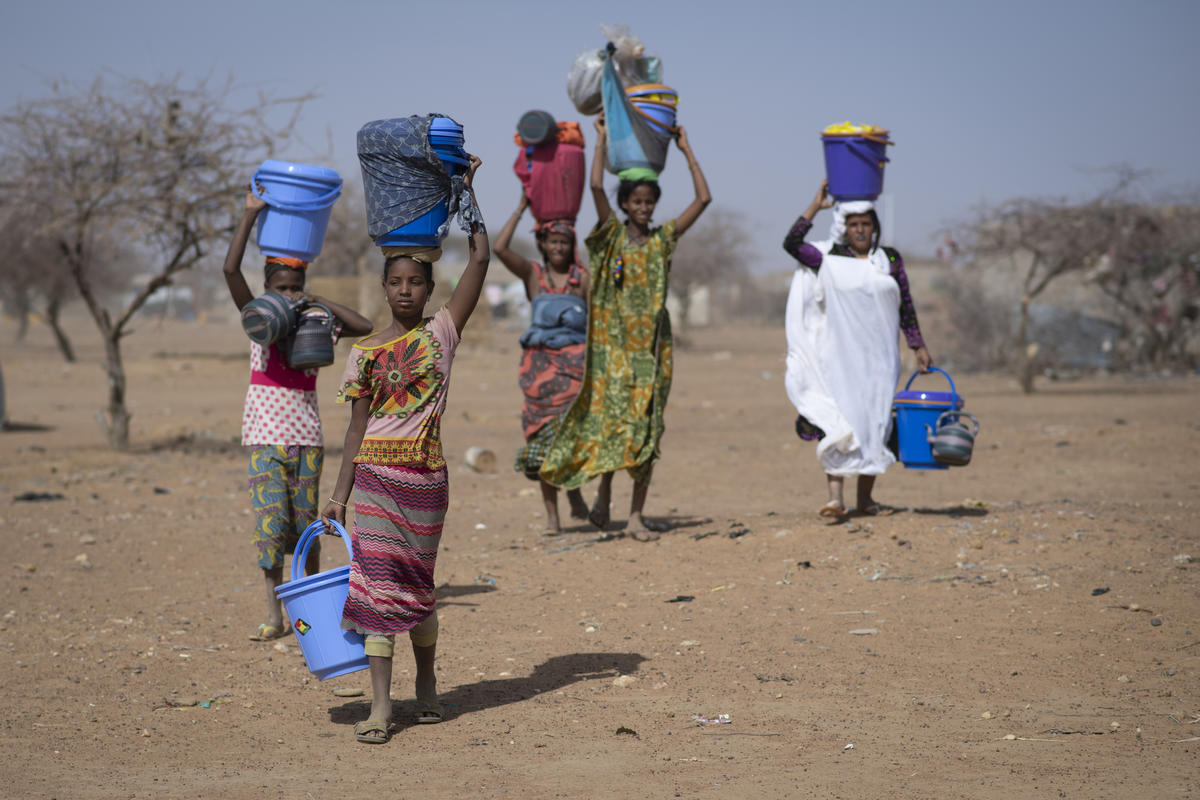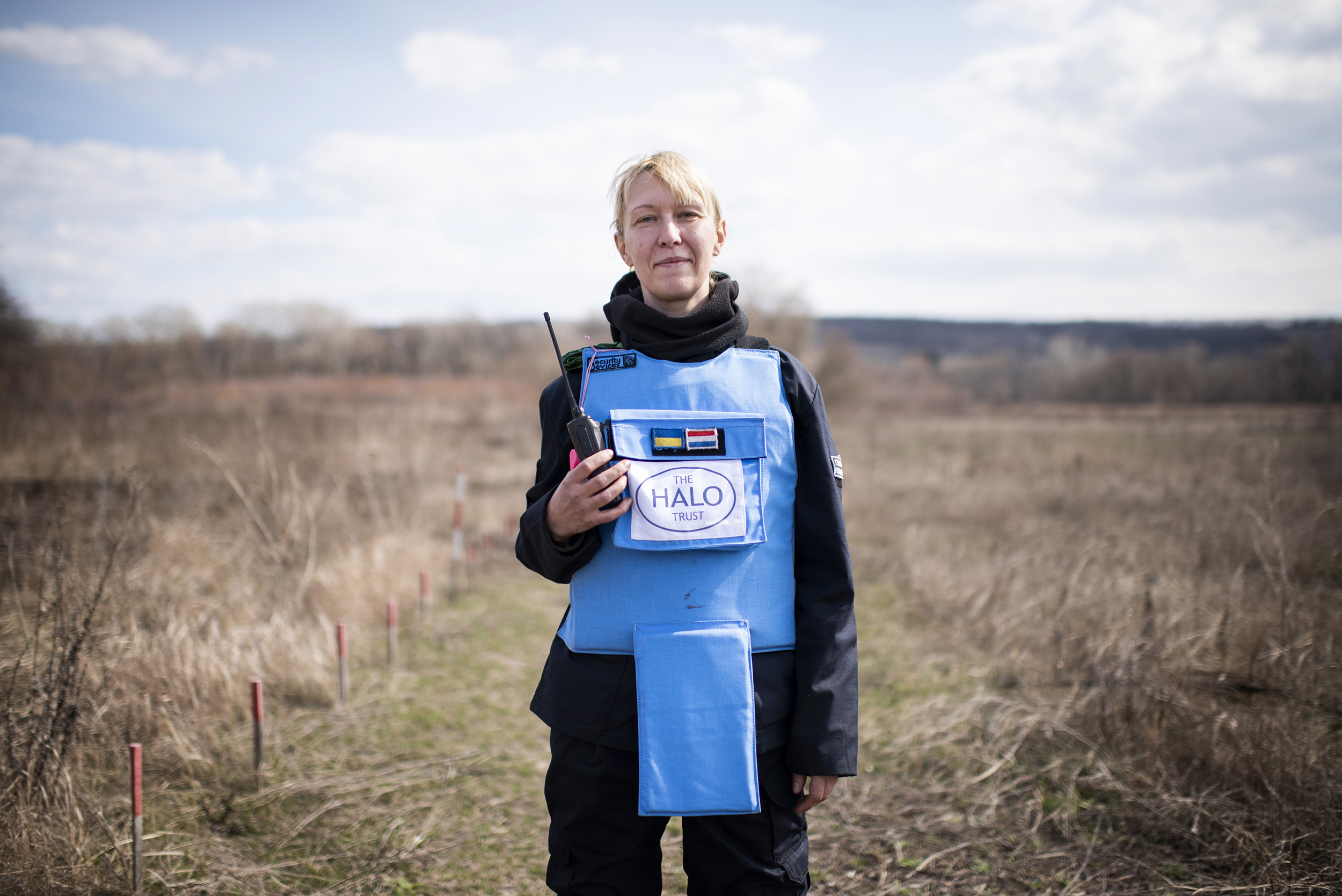UNHCR welcomes adoption of accord banning cluster bombs
UNHCR welcomes adoption of accord banning cluster bombs

DUBLIN, Ireland, May 30 (UNHCR) - The UN refugee agency welcomed the adoption in Dublin Friday of an international treaty aimed at ending the manufacture, use and stockpiling of cluster bombs, which continue to cause civilian casualties years after they have been dropped.
More than 100 countries adopted the Cluster Munitions Convention at the end of a two-week conference in the Irish capital, which was attended by UNHCR representatives. The treaty is scheduled to be signed this December in the Norwegian capital of Oslo.
UNHCR Representative in Ireland Manuel Jordão welcomed the adoption of the treaty, which focuses on an issue that is of particular interest to the agency because refugees and internally displaced people in conflict and post-conflict zones can be exposed to cluster munition remnants, endangering their lives and severely hampering their return home in conditions of safety.
They are particularly insidious weapons, delivered in a variety of ways and comprising a bomb casing that contains hundreds of small sub-munitions, which are scattered over a wide area when the bomb nears the ground.
Many of these "bomblets" fail to explode on impact, creating virtual minefields for years, killing or maiming people long after a conflict has ended. Children are particularly vulnerable, often mistaking the sub-munitions for toys.
Cluster munition remnants create serious restrictions of movement for civilians, obstruct economic and social development, including the loss of livelihoods, and impede post-conflict rehabilitation and reconstruction.
UNHCR's Jordão, after meeting cluster bomb victims at the conference, said: "Their stories show how indiscriminate a weapon it is, how it turns lives upside down at the most unexpected times, when conflict has ended, when people are returning home, when children are playing."
He said international efforts should focus on clearing contaminated areas so that affected communities can resume their lives with safety and dignity. "UNHCR is confronted with situations in our work, where conflicts have ended, but it's still impossible for refugees to return home, work on productive land, or resume normal life again. The scourge of these contaminated areas is terrible."
Lebanon, where UNHCR works with partners on mine action programmes, is a good example. Artillery-fired cluster bombs were dropped in populated areas in the south of the country during the brief war of 2006.
They were found in houses, schools and agricultural fields, affecting the daily lives, livelihoods and education of locals. Many people can still not cultivate their land and mine experts are working to clear the area. Cluster bombs have, to date, killed 20 people in southern Lebanon and injured 190, according to the UN Mine Action Coordination Centre in Lebanon.
Article 5 of the treaty adopted on Friday seeks states to adequately provide assistance to all victims of cluster munitions, including their medical care, rehabilitation and psychological support. There are also provisions for states to cooperate and provide assistance in areas such as clearance and destruction of cluster munition remnants, destruction and clearance of stockpiled cluster munitions, measures to mark hazardous sites and risk-reduction education.
Importantly, the treaty recognizes the need for the participation and consultation of victims, in addition to age and gender sensitive assistance and the special needs of vulnerable groups.
Berihu Messele, who attended the Dublin conference, is one such victim. The Ethiopian lost both his legs in a cluster bomb attack on the city of Mekele in 1998. He said he was satisfied with the outcome of the conference. "Countries very far apart have come together. We have a very good feeling that if this cooperation continues, we'll succeed in saving lives."
Irina Gorsic, minister counsellor of the Slovenian Ministry of Foreign Affairs, called on supporters of the Convention to strive for its globalization. Major military powers such as the United States, the Russian Federation and China do not support the treaty. But Britain reversed its opposition.
UNHCR works actively alongside many partners on mine action, including mine awareness, mine clearing activities and victim assistance in countries such as Afghanistan, Angola, Cambodia, Chad, Colombia and Lebanon.
By Steven O'Brien in Dublin, Ireland
and Laure Chedrawi in Beirut, Lebanon









